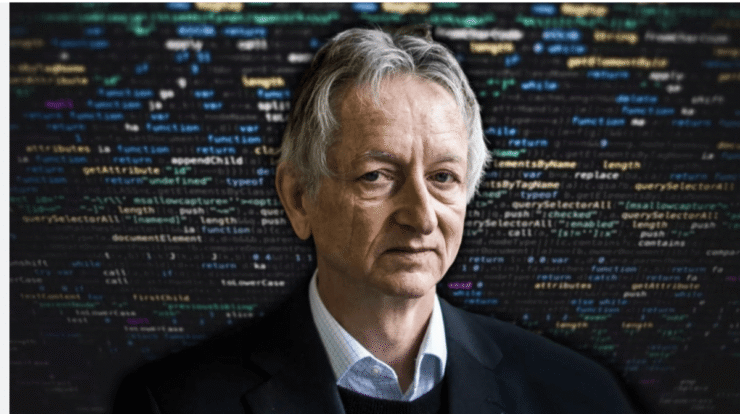
Geoffrey Hinton, a prominent leader in the realm of artificial intelligence and a crucial developer of deep learning techniques, recently shared an insightful and unexpectedly relaxed viewpoint regarding the swift progress of AI. During a recent conversation, the 77-year-old computer scientist revealed feeling relieved due to his advanced years, expressing doubt that some of the most severe predictions of AI dominating global affairs will unfold during his remaining lifespan. Given Hinton’s status as one of the founding figures behind contemporary AI technologies, his remarks hold considerable significance in debates concerning the upcoming developments and possible dangers associated with these advancements.
Hinton’s advancements in artificial intelligence, especially regarding neural networks and backpropagation, form the bedrock upon which today’s AI progress stands. The concerns and cautions he has voiced concerning the possible hazards posed by sophisticated AI systems have garnered significant attention. This makes his latest statements expressing a sense of temporary reassurance all the more pertinent. Despite ongoing worries over the future consequences of AI technology, Hinton currently believes these threats lie further ahead than what might occur within his own lifetime.
This viewpoint does not necessarily signify a reduction in Hinton’s broader worries regarding AI safety. Rather, it could demonstrate a deeper appreciation for the speed at which technology advances and the substantial obstacles left before reaching genuine artificial general intelligence (AGI)—a theoretical form of AI possessing human-like intellectual capabilities over various tasks. Although AI has achieved notable progress within certain areas, attaining AGI, or an even stronger version that might supersede humans, remains a considerable and possibly far-off hurdle for experts in the industry.
Hinton’s remarks might also be seen as highlighting the tremendous intricacy of the issue at hand. Creating artificial intelligence systems that excel beyond human abilities in particular domains, while simultaneously incorporating self-governance, drive, and tactical foresight needed for worldwide domination, continues to pose an enormous challenge. Furthermore, the active research and discussions around ethical concerns and security measures within the AI field introduce additional dimensions of complication when forecasting imminent global supremacy by AI entities.
It’s crucial to understand that Hinton’s perspective isn’t widely embraced across the AI research sector. Several specialists voice greater worries regarding the imminent misuses of today’s AI technology, along with the dangers tied to its swift advancement. Discussions around algorithmic biases, job displacement effects, and the possibility of self-governing weapon systems persistently stoke apprehensions concerning AI’s broader social impacts.
Nevertheless, Hinton’s viewpoint provides a significant alternative angle, rooted in his extensive knowledge of the core technologies and their present developmental stage. His sentiment about being relieved due to his age implies that he considers highly dramatic, sci-fi-like takeovers by artificial intelligence to be less imminent than others may believe. While this shouldn’t lessen our focus on carefully examining ethical concerns and establishing robust safeguards, it could potentially provide us with additional time to tackle these vital matters.
In essence, Hinton’s remarks underscore the dynamic and ever-evolving discourse around AI’s future. Despite being considered the “Godfather of AI,” he recognizes the unpredictability and intricacies tied to forecasting where this groundbreaking tech will lead. The introspection about his own lifespan and the projected timing for possible existential threats brings a distinctively human aspect to this significant worldwide debate. Although maintaining caution and fostering ethical advancement are crucial, Hinton implies that extreme predictions of imminent AI dominance may not pose an urgent risk during his time, providing some comfort amid concerns over this potent and swiftly progressing domain.





